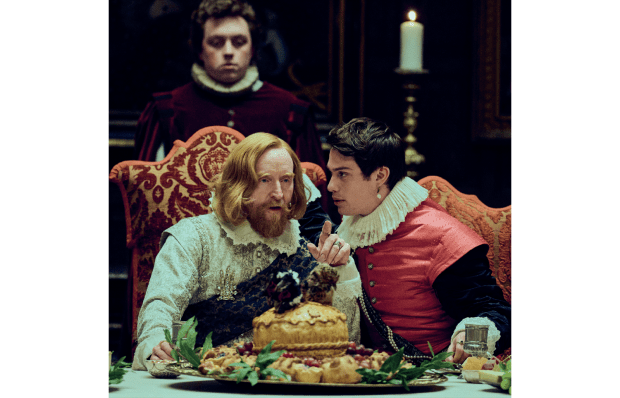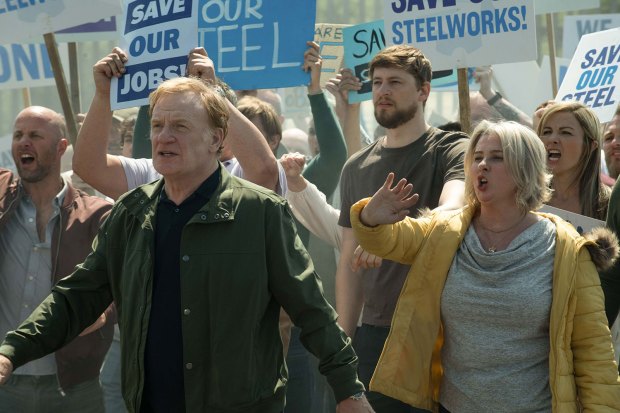It might seem a bit of a stretch to see deep similarities between Michaela Coel (young, female, black and currently very fashionable indeed) and the late Philip Roth (increasingly discredited as an embodiment of all those phallocentric white guys who once ruled American fiction merely because they were great writers). Nonetheless, this week’s television made it hard not to. On Tuesday night, as an adaptation of Roth’s The Plot Against America began on Sky Atlantic, Coel’s I May Destroy You was serving up a dazzling final episode that confirmed how Rothian the series has been.
For one thing, the main character Arabella, played by Coel herself, was — like many a Roth protagonist — not just a writer, but a writer concerned with transforming autobiographical experience into the kind of fiction that, in a tricksy twist, is partly about its own creation. The show, by now famously, was based on a sexual assault Coel suffered after her drink was spiked. The same happened to Arabella in episode one and for the rest of the series she wrestled with how best to write about it (or, in other words, how best to write the programme we ended up watching). The conclusion she came to in that final episode was pretty Rothian too: that having so many different and sometimes contradictory ways of telling her story was her story. After finally identifying her attacker, Arabella/Coel dramatised three possible endings to see which of them best represented her feelings, before firmly suggesting that they all did.
Throughout the series, the assault was also the springboard for a full-scale rumination on all our current cultural concerns (or obsessions). In lesser hands, this could have meant a dreary and dispiriting recitation of received wisdoms: black people and women good, white people and men bad etc. The way Coel did it proved the truth of another of Roth’s central beliefs: that any work of fiction worth its salt is an argument with itself. In scene after scene, she set up what looked like being the usual binary divisions — but then pulled out any number of rugs from under our feet in a way that undermined both viewpoints. As a result, whatever their position on all this stuff, most viewers will surely have found plenty of things to agree with, plenty to disagree with and a few that left them with no idea where to stand — which sounds about right to me.
Better still, I May Destroy You achieved all this without ever feeling like some sort of cerebral exercise. Instead, it remained a fiercely engaging drama with a fearless (and again Rothian) indifference to anything resembling decorum, and a large cast of characters who bristled with convincing contradictions of their own. In short, not only did the series deserve all the fuss that it’s generated, but in today’s climate it also felt distinctly refreshing.
As for Roth himself, rather anti-climactically, The Plot Against America is shaping up to be both perfectly watchable and ultimately disappointing. In 2004, Roth imagined an America in which Charles Lindbergh — national hero and anti-Semite — won the presidential election of 1940, claiming that his only intention was to keep the US out of another European war and not, say, to oppress the country’s Jews. Roth further imagined what would then have happened to his own Jewish family in Newark, New Jersey, although in the TV version the Roths are renamed the Levins.
When the novel came out, some critics strove somewhat desperately (and despite Roth’s denials) to draw parallels with George W. Bush on the grounds that, like Lindbergh, he’d been a pilot. These days, perhaps they don’t have to try so hard to find a president with a possibly unpleasant subtext to his populism. Certainly, the show’s creator David Simon (of The Wire fame) has made no bones about his desire to stick it to Donald Trump.
And essentially this double focus is the main trouble with the programme. The portrait of 1940s Newark is as carefully and lovingly done as Roth did it. Yet, the more realistic the historical setting, the harder it is for the programme to achieve its aim of making us think it’s just like now, when we can see for ourselves that this is a long-vanished America. Not only that, but the racial divisions on display (Jew vs gentile) — while clearly important to Roth’s concept of himself as a Jewish-American writer — don’t translate that tellingly to the present day either. There’s also the awkward fact that once Lindbergh wins, we’re being invited to learn lessons from a non-existent past. In the circumstances, it’s no wonder that the regular anti-Trump nudges feel more like a distraction from a pretty good piece of speculative historical drama than a savage indictment of contemporary America.
Got something to add? Join the discussion and comment below.
Get 10 issues for just $10
Subscribe to The Spectator Australia today for the next 10 magazine issues, plus full online access, for just $10.
You might disagree with half of it, but you’ll enjoy reading all of it. Try your first month for free, then just $2 a week for the remainder of your first year.














Comments
Don't miss out
Join the conversation with other Spectator Australia readers. Subscribe to leave a comment.
SUBSCRIBEAlready a subscriber? Log in